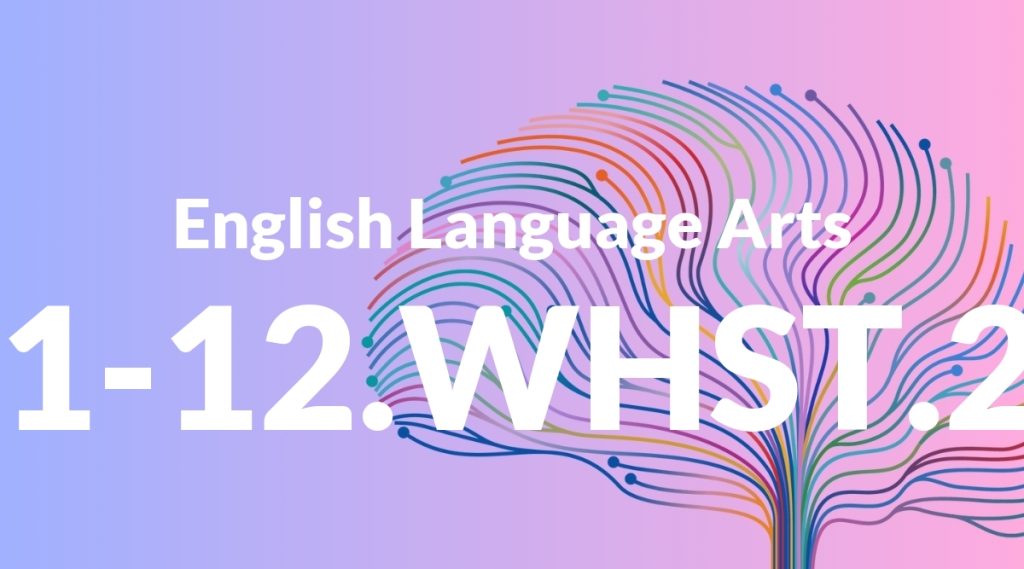Standard: 11-12.WHST.2 – Write informative/explanatory texts, including the narration of historical events, scientific procedures/experiments, or technical processes.
Grade level: Grade 11-12
Subject: English Language Arts
Domain: Writing: History, Science & Technical Subjects
Teacher Overview
This standard focuses on students’ ability to write informative and explanatory texts, which are crucial for academic and real-world success. It encompasses the narration of historical events, scientific procedures, and technical processes, helping students to communicate complex information clearly and effectively. Before tackling this standard, students should be proficient in basic writing techniques, understand the purpose of different text types, and have foundational knowledge in history, science, and technical subjects.
Mastering this standard will prepare students to write detailed, coherent, and engaging informative texts in various fields, enhancing their academic and professional communication skills.
Common Misconception 1
A common misconception is that informative writing is merely a list of facts. This is incorrect because effective informative writing requires a clear structure, including an introduction, body, and conclusion, to guide the reader through the information.
Intervention 1
To address this misconception, use graphic organizers and writing templates to help students structure their writing. Provide examples of well-organized informative texts and practice outlining before writing.
Common Misconception 2
Another misconception is that technical writing cannot be engaging. This is false because even technical writing needs to capture the reader’s attention and be clear and interesting.
Intervention 2
Show students examples of engaging technical writing. Teach them techniques such as using active voice, varying sentence structure, and considering the audience’s needs to make their writing more engaging.
Prerequisite Knowledge
Students should have a foundational understanding of basic writing structures, research skills, and the ability to differentiate between various types of texts (narrative, informative, etc.). They should also be familiar with the basics of historical, scientific, and technical topics.
Subsequent Knowledge
After mastering this standard, students will be able to create detailed and coherent informative texts across various subjects. They will develop advanced research skills, the ability to synthesize complex information, and the capacity to communicate technical and scientific information effectively.
Instructional Activities
- Research and write a paper on a historical event
- Document a scientific experiment step-by-step
- Create a user manual for a new technology
- Compose an article explaining a complex scientific process
- Draft a technical report on a project




